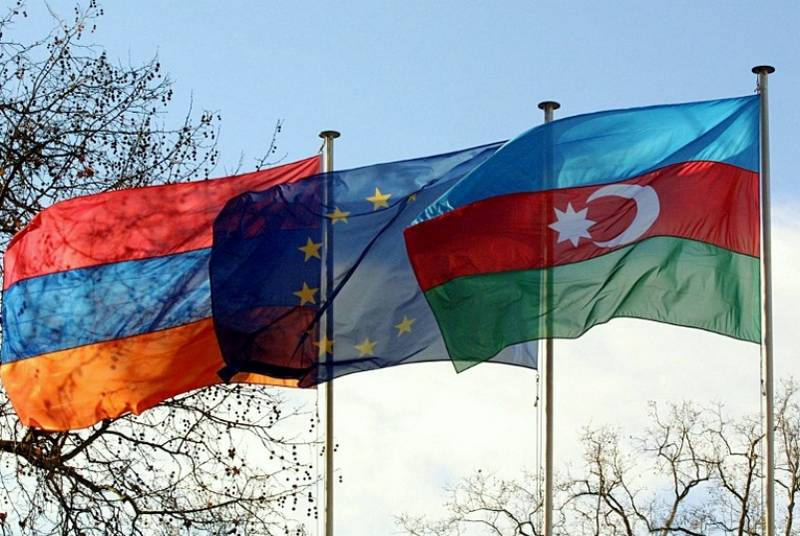In the early hours of September 27, the World, reluctantly preparing for the second phase of a global pandemic, woke up to the news of renewed fighting between Armenians and Azerbaijanis in Artsakh (Nagorno-Karabakh).
What on first sight seemed, to some, something usual, happening from time to time, at a closer glance offered a fundamentally different picture, even when compared to the Four-day war of April 2016.
This time it was different not only because the hostilities were taking place along the entire Line of Contact between Azerbaijan and Nagorno-Karabakh, but because one of the most important regional players was directly involved in the ‘Azerbaijani affair’, with its military personnel, weaponry, and even jihadist militants transferred from Libya and Syria.
It was and still is dangerously different since this seemingly ‘Armenian-Azerbaijani matter’, if not stopped immediately, can potentially spill over into a full-blown war directly affecting the interests of an entire spectrum of regional actors, such as Russia, Turkey, Iran and even the EU and recently the rather disengaged US.
Today is the 11th day of the war. And this morning has brought no good news for the peaceful population of Artsakh and its capital Stepanakert but renewed intensive shelling by Azerbaijan’s armed forces backed by Turkey. The violations of the International Humanitarian Law on the side of Azerbaijan are serious - use of prohibited cluster bombs, and the targeting of civilians, including reporters and civilian infrastructure.
Today is the 11th day of the war and Azerbaijani leader Aliyev and its ‘Big Brother’ and fellow Turkish President Erdogan are still rejecting the unanimous calls of the international community, including the OSCE Minsk Group Co-Chair countries Presidents (France, Russia and the US) to immediately cease the hostilities and resume negotiations. Meanwhile, the Armenian side, echoing these calls, signalled its readiness to engage in meaningful discussions in the framework of the OSCE Minsk Group Co-Chairmanship without preconditions
Azerbaijan’s leader has long been criticizing the OSCE Minsk Group Co-Chairmanship format, which is the only internationally agreed format for mediating the peaceful resolution of the Nagorno-Karabakh conflict, that has originated not in 1988 as erroneously presented by many, but in 1921, when with Joseph Stalin the ethnic Armenian Nagorno-Karabakh was put under the jurisdiction of Soviet Azerbaijan. So, what is Aliyev’s alternative to the Minsk Group Co-Chairmanship, which is comprised of three out of five UN SC permanent members and is supported by everyone (including in the recent statement of the UNSC) except for the aggressors. Turkey?
In fact, the Turkish support that had so much emboldened the Azeri leader, sunk in domestic grievances, proved itself more of a fool’s gold rather than a factor ensuring Azerbaijan’s rapid victory.
The international community is clearly disapproving of Turkish direct involvement in the conflict. President Macron of France dispelled all doubts by confirming the presence of mercenaries from Syria and Libya on the ground fighting alongside Azerbaijan and imported by Turkey. This was later confirmed by other regional actors as well. President Macron, was also clear in his message that Azerbaijan’s aggression against Nagorno-Karabakh/Artsakh and Armenia had no justification.
Still, the rest of the world and the international community seem somewhat reluctant to call directly on Azerbaijan to stop the hostilities and take a seat around the negotiations table. They rather prefer sticking to the good-old ‘call on all sides’ wherever possible. This is a risky choice both because of Azerbaijan’s and especially Turkey’s increasingly aggressive behaviour in the region, and because strictly speaking you cannot require from the side that is legitimately and lawfully exercising its right to self-defence against an aggressor to put the arms aside, before ensuring that the latter has stopped shooting.
It is time for the international community to act decisively and to send a clear message to Azerbaijan and Turkey that this has to stop. After all, decision-makers should not forget that Turkey is not just any country that is directly attacking Armenia and Artsakh, but a NATO member state.
Moreover, once the arms are finally down, the EU should carefully reconsider the ongoing negotiations of the new EU-Azerbaijan strategic partnership agreement and its substance. Any further decision on the matter will be a real test for the EU to prove its unconditional commitment to the values of democracy, human rights and the rule of law.
Rima Nieto, EU and Foreign Policy Analyst, LL.M. in Public International Law, Leiden University


